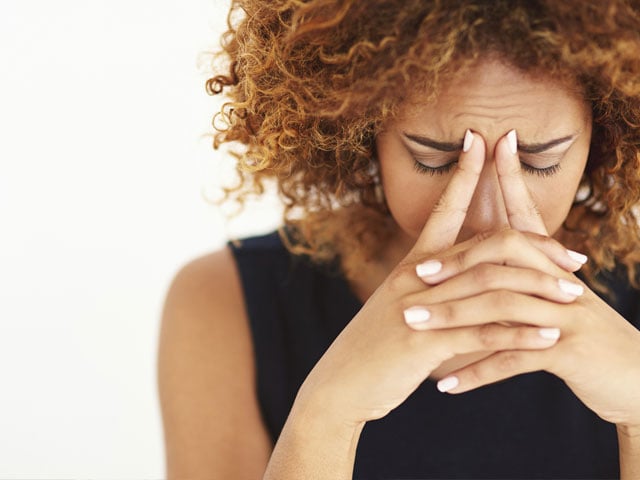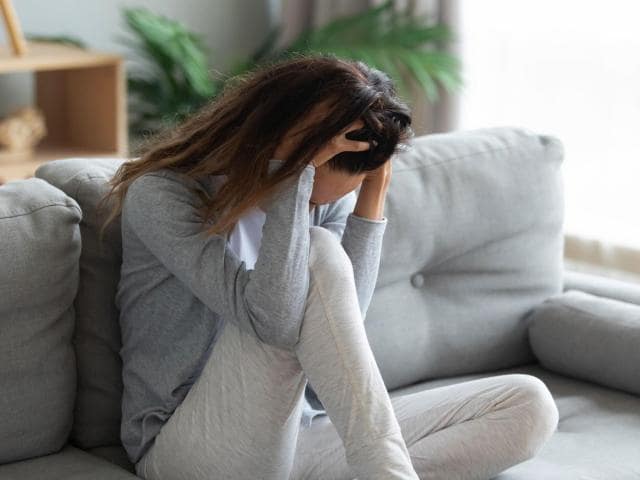Stop informing yourself
When a person has an ongoing state of anxiety, he or she tends not to become informed about the anxiety, but to become over-informed. It is a good time to ask yourself: the purpose of informing yourself is… to get more information, what exactly, will this tell me how to control anxiety?
It is good that you are informed about what anxiety is, how it appears, and what events usually cause it… as long as this knowledge does not lead you to generate more thoughts that lead you to suffer (personal or others), to catastrophic thoughts, to feel that this situation is getting worse… because then during all this time your goal of being informed will move to the background, to be the first to be stressed and thus to increase the physical symptoms such as headaches.
Your well-being depends as much on what you do as on the information that comes in, and the information you can find is, in many cases, totally alarmist, catastrophic, and pessimistic. All this does not help to control anxiety but increases it. Therefore we recommend that the sooner the better, you can go to a professional to help you manage this anxiety situation, give you personalized strategies on how to control your anxiety and you can be well informed about what anxiety is and how to deal with it.
To do this it will be very important that you first become aware of how this over information is affecting your sense of loss of control and increased alarm, and secondly that you carry out self-control strategies to reduce this continuous search for information. As this strategy says, self-control is a strategy to control anxiety.
You have to care, and not worry
The symptoms that appear most often are a mixture of Generalized Anxiety Disorder (GAD) and panic attack (PA) symptoms. Both disorders seriously affect your mental health and are related to trait anxiety and anxiety crises, and precisely what we are looking for is to reduce it.
The most characteristic symptom of GAD is worry. In this case, your worry is related to the onset of stress because of the helplessness you feel both in the present moment and for what may happen later.
Some of the symptoms of AP are palpitations (your heart beating very fast), dizziness, fainting, and labored breathing.
To treat all this, we have two basic tools, one that we will explain here and another that we will explain in point 3. Both anxiety disorders can be treated by Cognitive Behavioral Treatment, as it is the treatment that has been shown to be the most effective. Therefore, the coping strategies to control anxiety will be based on the cognitive-behavioral approach.
Do physical exercise
The effects that physical exercise has on us have been studied and it has been observed that it has positive effects both physically and mentally (improves self-esteem, attention, and musculature, allows socialization, and reduces anxiety…).
All these effects are well known, and now it is more important than ever that you do it. For this, we have a multitude of youtube channels that adapt very well to our routine and our level. The goal is not to do more exercise than before, nor to be professional, the goal is to get you moving. In addition, among other effects that have been seen is that it improves the immune system.

This is, from our point of view as professionals, one of the best strategies to control anxiety.
Practice relaxation techniques
As we have seen before, one of the most recurring symptoms among those who present symptoms of anxiety is difficulty in breathing. For this, the most effective technique has been shown to be diaphragmatic breathing. Diaphragmatic breathing will be a key strategy to reduce anxiety.
This technique allows you to improve oxygenation, helps you to improve breathing, improves your lung capacity, and serves to treat, relieve or prevent panic attacks, as we said before, these have the most similar symptoms to those you are experiencing.
Take care of your sleep
One of the aspects that are most aggravated when we are under stress is difficulty sleeping. It is essential that you take care of it, because it is a very important indicator of your mood, besides having direct effects on your attention, memory, and learning … If you do not sleep well, the day will be heavier and more difficult to cope, besides having a direct implication in stopping your routines, exercises, increase your bad mood … And all these side effects will make it more difficult to achieve your goal of reducing and controlling anxiety.


